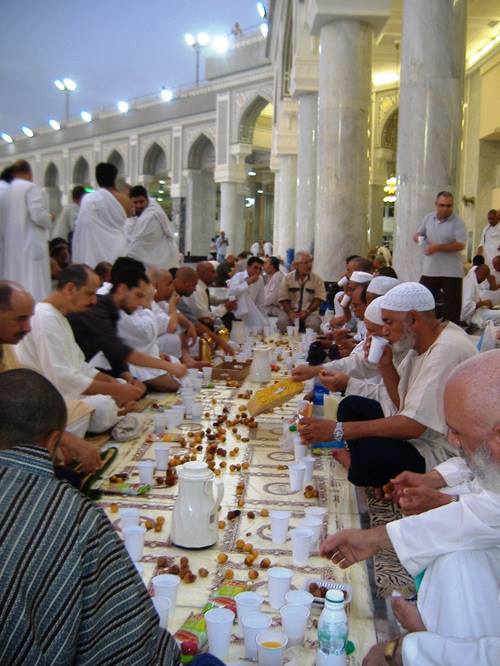Ramadhan Reflections Day 17 | The Battle of Badr
Posted in Uncategorized
Posted in Uncategorized
There is a common belief that one who passes away during blessed days or months is saved from the punishment of the grave.
The following discussion supports this.

Death on a Friday
Sayyiduna ‘Abdullah ibn ‘Amr ibn al-‘As (radiyallahu ánhuma) reports that Rasulullah (sallallahu álaihi Wasallam) said, ‘Whoever passes away on a Friday will be saved from the punishment of the grave.’
(Musnad Ahmad vol.2 pg.220; hadith 7050, 6646).
Similar narrations have been reported by Sayyiduna Jabir ibn Abdullah
(refer Hilyat al-Awliya vol.3 pg.181),
Sayyiduna Anas ibn Malik (refer Abu Ya’ala, Majma al-Zawa’id vol.2 pg.319)
and others.
Meaning of this Hadith
It is possible that the punishment is withheld for that day or even permanently. (Fatawa Mahmudiyya vol.6 pg.62; Rad al-Muhtar vol.2 pg.165)
Death in Ramadhan
As for the one passing away in Ramadan being saved from punishments, this can be deduced from the hadith that in Ramadan, the doors of Jahannam (Hell) are closed and the doors of Jannah are opened. (Sahih al-Bukhari hadith 3277; also refer to Fatawa Mahmudiyya vol.6 pg.63)
Hafiz Ibn Rajab al-Hambali (rahimahullah) states, ‘Our predecessors preferred a death after the performance of a good action like the fast of Ramadan … and it used to be said, ‘Whoever passes away in this manner is forgiven’.’(Lata’if al-Ma’arif pg.173)
Imam Ibn Abid-Dunya (rahimahullah) has narrated from Imams; Musayyab ibn Rafi’i (rahimahullah) and Khaythamah ibn ‘Abdul-Rahman (rahimahullah) (two tabi’een) that they said, ‘It used to be said (i.e, by the Sahabah ), ‘Whoever observes the fast of Ramadan and passes away during that year enters Jannah.’ (Fadha’il Shahr Ramadan pgs.44;48)
And Allah Ta’ala Knows Best
Posted in Uncategorized

The Prophet (s.a.w.w) taught us five favourable (mustahab or “sunnah”) actions for us to follow while fasting. These are:
1. Hasten Iftaar: When Maghrib time arrives, hasten to break your fast–do not delay. It’s said that he, (s.a.w.w), sent Bilal (R.A) to stand on top of a high-up hill to see when the sun set, then broke his fast immediately.
2. Eat Suhoor: A lot of cultures teach us to skip suhoor and start fasting when we sleep. (Though nobody skips the sunnah of hastening iftaar …) Aside from being (medically) bad for you, it extends the length of your fast by a good six or more hours.
Forget that. Eat suhoor–and close to Fajr time–and with this, with iftaar, protects your fast–dawn to sunset. The Prophet (s.a.w.w) said: My nation will remain in goodness as long as they break the fast as soon as it is due. [Muslim]
3.Pray Fajr: The Prophet (s.a.w.w) never, ever missed Fajr intentionally, ever. Skipping salaah entails a major sin! Scholars differ on whether you are considered Muslim or not if you skip prayers intentionally, i.e. whether you will enter Hellfire forever–may Allah protect us all. So don’t do it! If you eat suhoor close to Fajr anyway, it becomes very easy to pray Fajr. If you have access to transportation, pray at the masjid and get the benefit of multiplied good deeds deposited in your account.
4. Avoid Foul Language: The Prophet (s.a.w.w) said: Whoever does not give up forged speech and evil actions, Allah is not in need of his leaving his food and drink (i.e. Allah will not accept his fasting.) [Bukhari 3/31/127, Muslim] So no swearing, lying, backbiting, insulting, etc. You wouldn’t want to struggle though all that hardship, to end up with an unaccepted fast, would you?
5. Make Du’a at Iftaar: A lot of people miss out on this. We cram dates into our mouth when the adhaan sounds, then rush off to make wudoo or pray Maghrib.
The Prophet (s.a.w.w) said: Three prayers are not rejected: the prayer of a father, the prayer of a fasting person, and the prayer of a traveler. [Al-Bayhaqi, Saheeh according to Al-Albani] [1]
So keep it simple: stick the date in your mouth and raise your hands to the sky. You get the best of both rewards!
And remember, the reward of following a sunnah (or musthabb–recommended act) is an accreditation of good deeds in your account. And we can all do with more good deeds.
May Allah (swt) keep us all on the Straight Path and help us to follow the sunnah, ameen!
For more islamic post please like the page
http://www.facebook.com/Prophet.MUHAMMAD.MayPeaceBeUponHIM